In today's competitive job market, retaining top talent has become more crucial than ever. Companies are realizing that the traditional approach of simply offering competitive salaries isn't enough to keep their best employees engaged and loyal. Instead, organizations are shifting their focus towards creating comprehensive talent retention plans that prioritize professional development, workplace culture, and employee well-being. If you're eager to explore effective strategies for retaining your star performers, keep reading!

Personalized Acknowledgment
Personalized acknowledgment of top talent plays a crucial role in an effective retention plan within organizations. Recognizing individual contributions fosters employee engagement and satisfaction. For instance, a tech startup may highlight successful projects completed by key engineers, emphasizing their innovation and dedication. Personal notes from senior leadership can be shared during quarterly meetings, showcasing appreciation for milestones achieved, like the successful launch of software updates that improved user experience by 25%. Celebrating personal achievements, such as an employee completing their first marathon, can strengthen relationships within teams and enhance workplace culture, ultimately reducing turnover rates.
Career Development Opportunities
Career development opportunities significantly enhance employee engagement and retention within organizations. Programs such as mentorship initiatives, skill enhancement workshops, and leadership training can provide employees with paths for advancement. Offering access to online courses through platforms like Coursera or LinkedIn Learning fosters ongoing learning and empowers staff to develop industry-specific skills. Regular performance reviews, which can be scheduled bi-annually, also encourage dialogue about career aspirations, ensuring alignment between organizational goals and individual growth. Additionally, establishing clear pathways for promotion can motivate employees to pursue long-term careers within the company, ultimately reducing turnover and benefiting the overall workplace culture.
Competitive Compensation Package
A competitive compensation package ensures the retention of top talent by addressing financial incentives, benefits, and long-term rewards. Salaries benchmarked against industry standards (for example, tech companies in Silicon Valley) create a baseline that meets or exceeds employees' expectations. Bonus structures, typically ranging from 10% to 20% of annual salary, reward outstanding performance and encourage continued effort. Comprehensive benefits, including health insurance, retirement plans with company matching (often up to 6%), and flexible working arrangements, cater to diverse employee needs. Stock options or equity in the company align employee interests with organizational success, fostering loyalty and motivation. Tailored professional development opportunities also contribute to job satisfaction, making employees feel valued and invested in their growth.
Work-Life Balance Initiatives
A successful work-life balance initiative can enhance employee satisfaction and retention in organizations like Google or Microsoft. Implementing flexible working hours allows employees to balance personal commitments, fostering a healthier lifestyle. Offering remote work options, especially post-pandemic, can improve morale and productivity, according to a 2021 Pew Research report showing that 67% of workers favor remote capabilities. Additionally, wellness programs that include mental health resources, yoga sessions, or access to meditation apps can support physical and emotional well-being. Organizations might also consider family support initiatives, like onsite childcare or parental leave, to create an inclusive workplace. Comprehensive work-life balance strategies can ultimately reduce turnover rates (which can cost companies 50%-60% of an employee's annual salary) and cultivate a committed workforce.
Open Communication Channels
Open communication channels play a crucial role in the retention strategy of top talent within organizations. Establishing transparent pathways for dialogue, such as regular one-on-one meetings, team forums, and anonymous feedback tools, can significantly enhance employee engagement. Research shows that companies with effective communication practices experience up to 25% higher employee satisfaction rates. Utilizing platforms like Slack or Microsoft Teams helps facilitate real-time conversations and encourages collaboration among members in dynamic environments. Regularly scheduled feedback sessions enable employees to voice their concerns, thus addressing potential issues before they escalate. Furthermore, incorporating tools for upward feedback fosters a culture of inclusivity and trust, essential for long-term retention. Overall, prioritizing open communication not only supports individual growth but also cultivates a robust organizational culture conducive to retaining top-tier talent.
Letter Template For Top Talent Retention Plan Samples
Letter template of employee engagement strategies for top talent retention
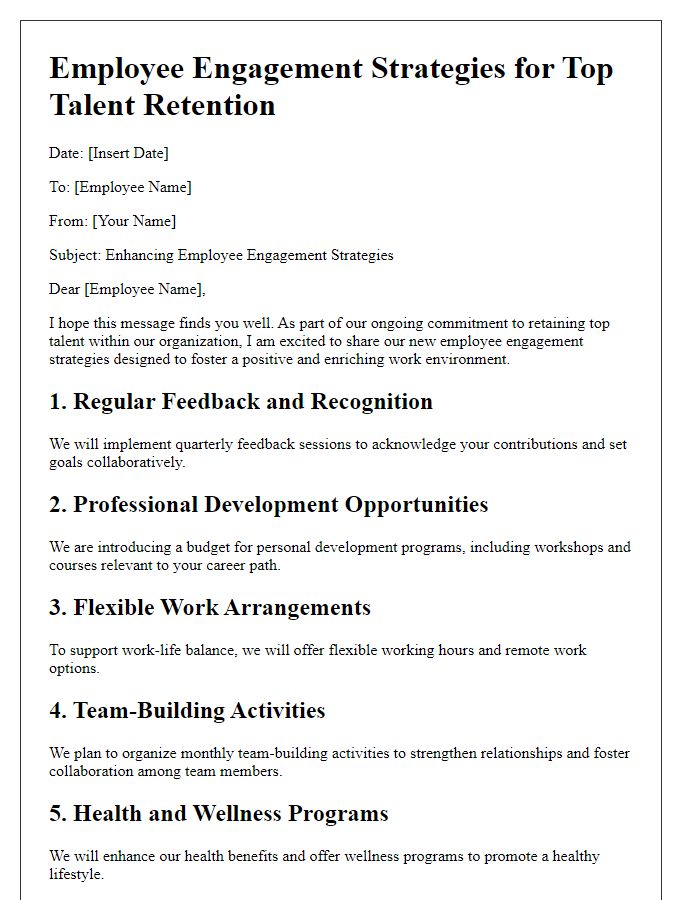
Letter template of personalized career development plans for top talent retention
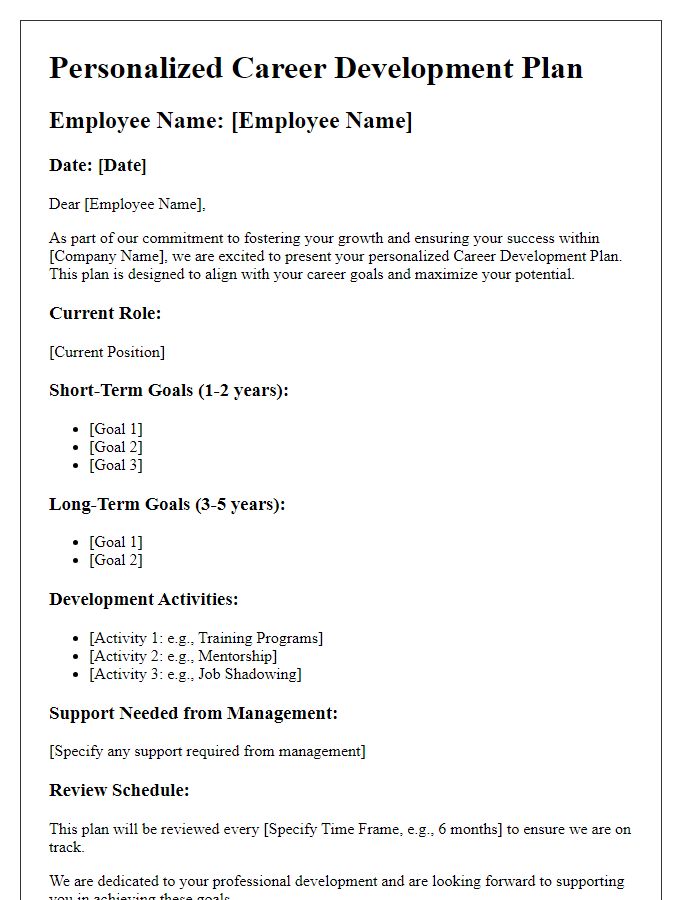
Letter template of competitive compensation review for top talent retention
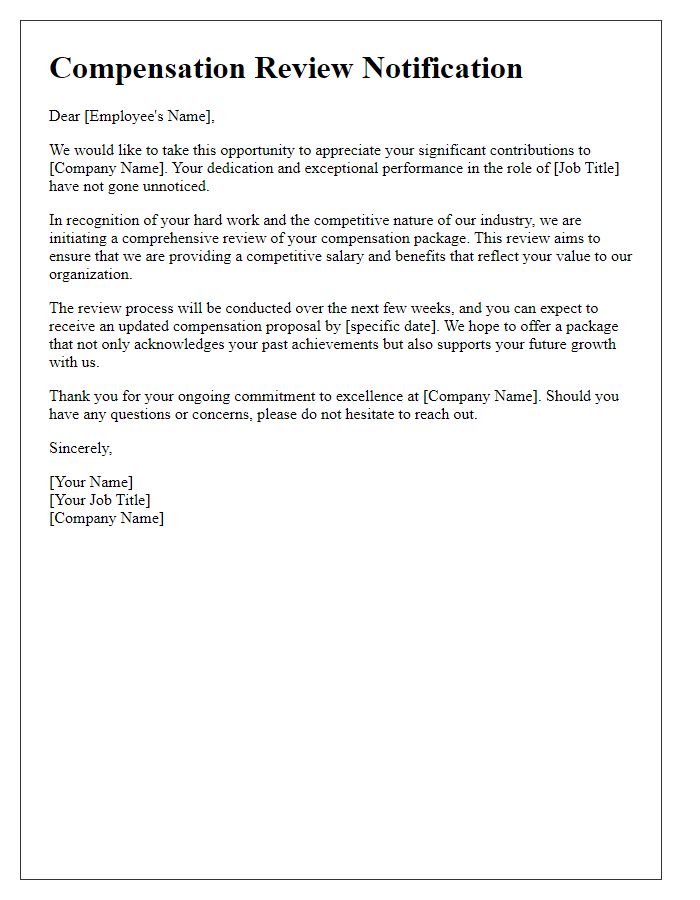
Letter template of recognition and rewards programs for top talent retention
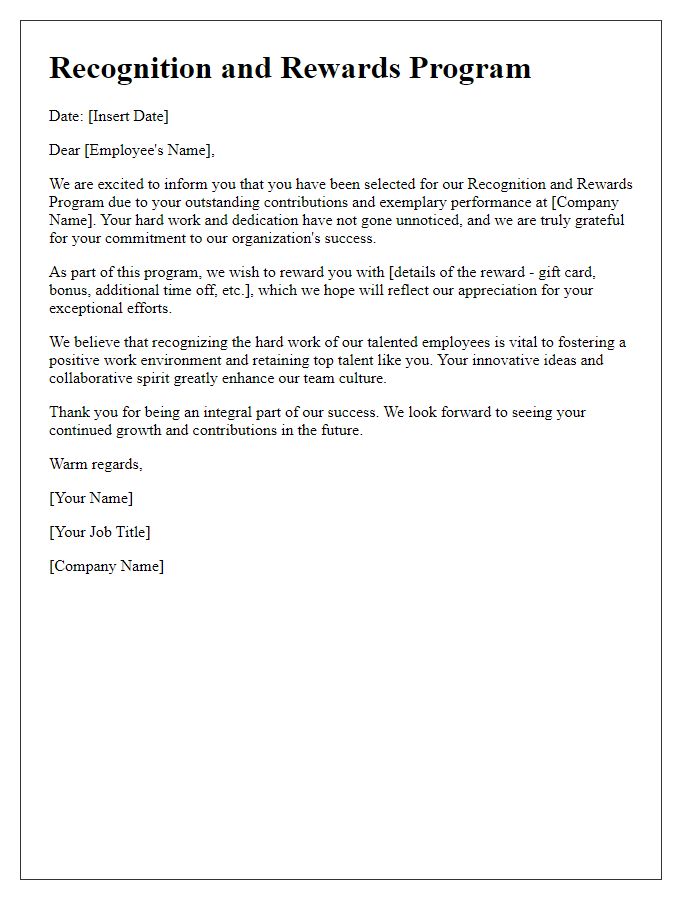
Letter template of work-life balance initiatives for top talent retention
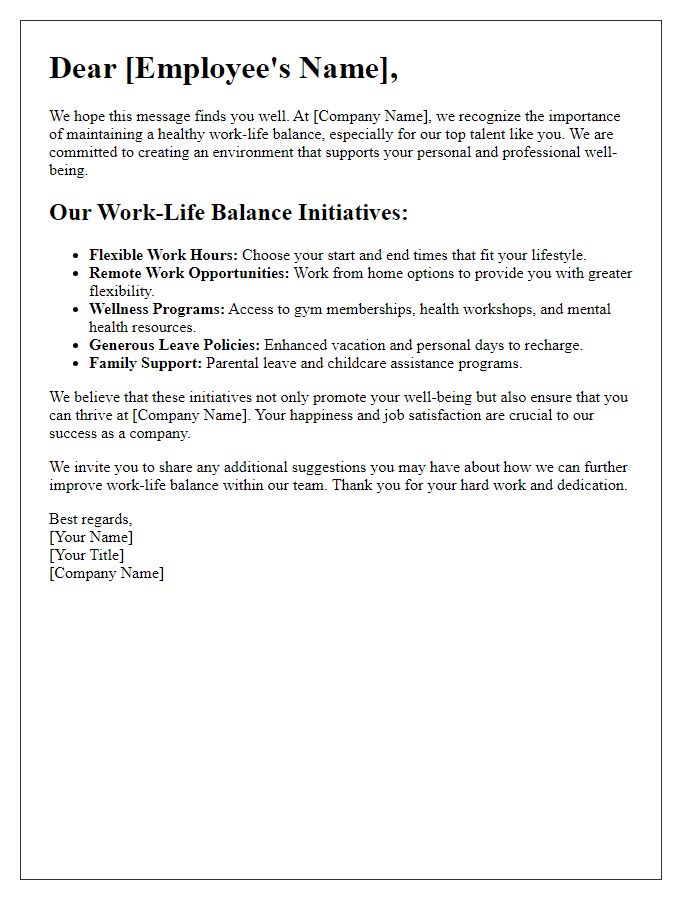
Letter template of feedback and communication frameworks for top talent retention
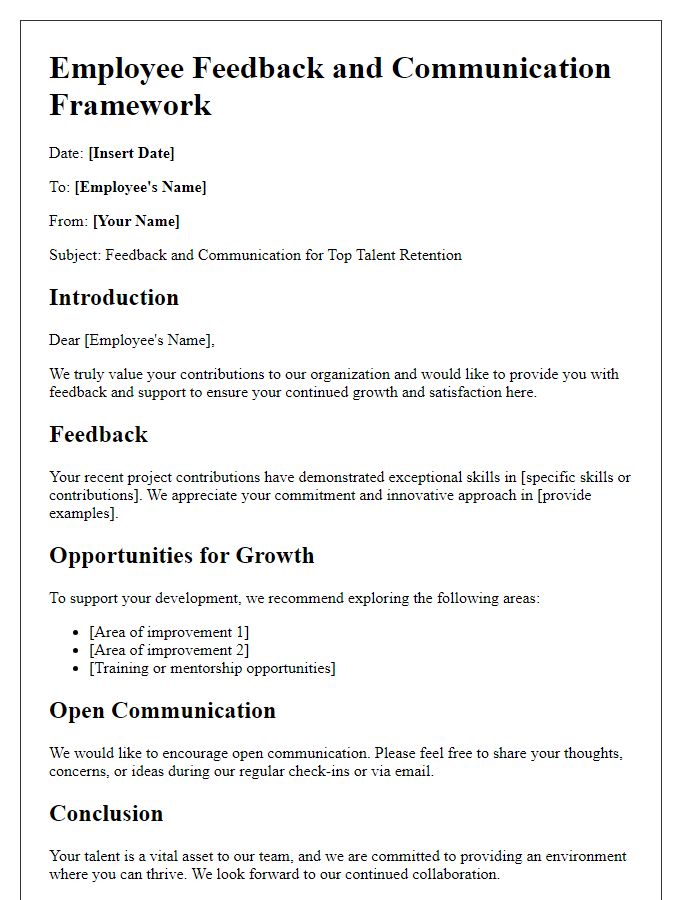
Letter template of professional growth workshops for top talent retention
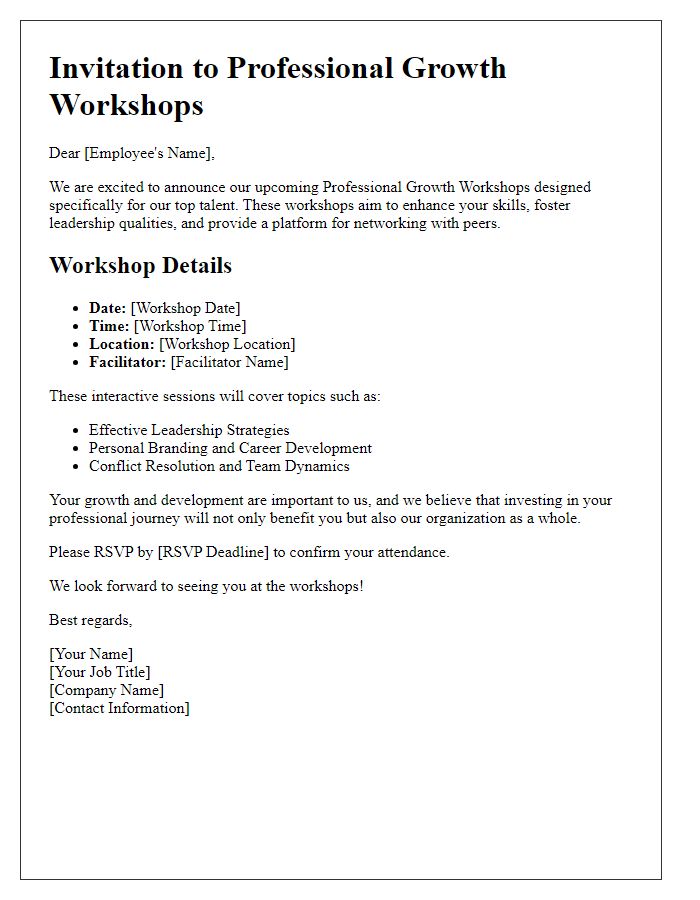
Letter template of inclusive workplace culture proposals for top talent retention
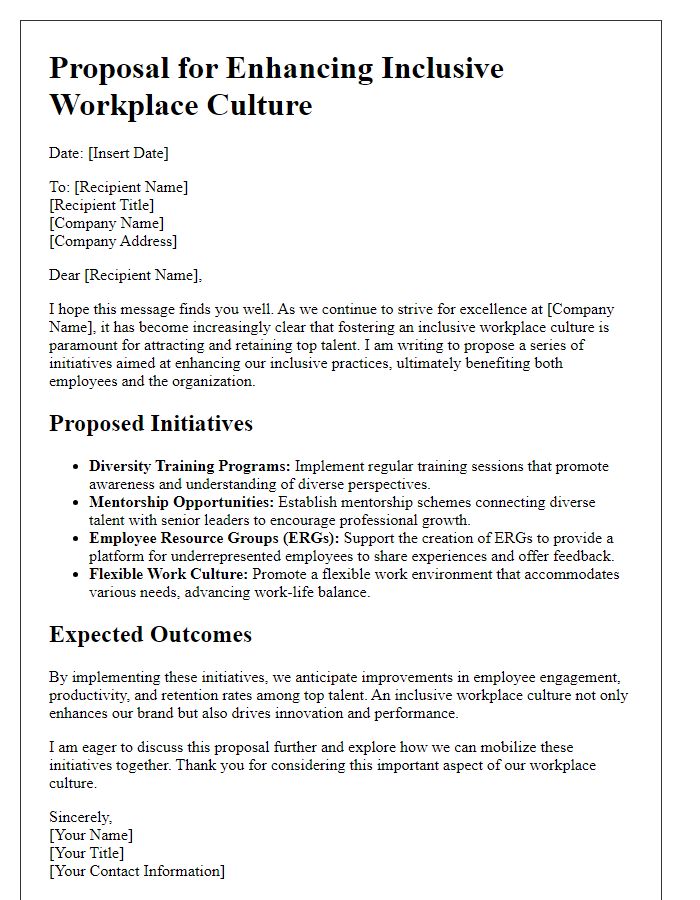

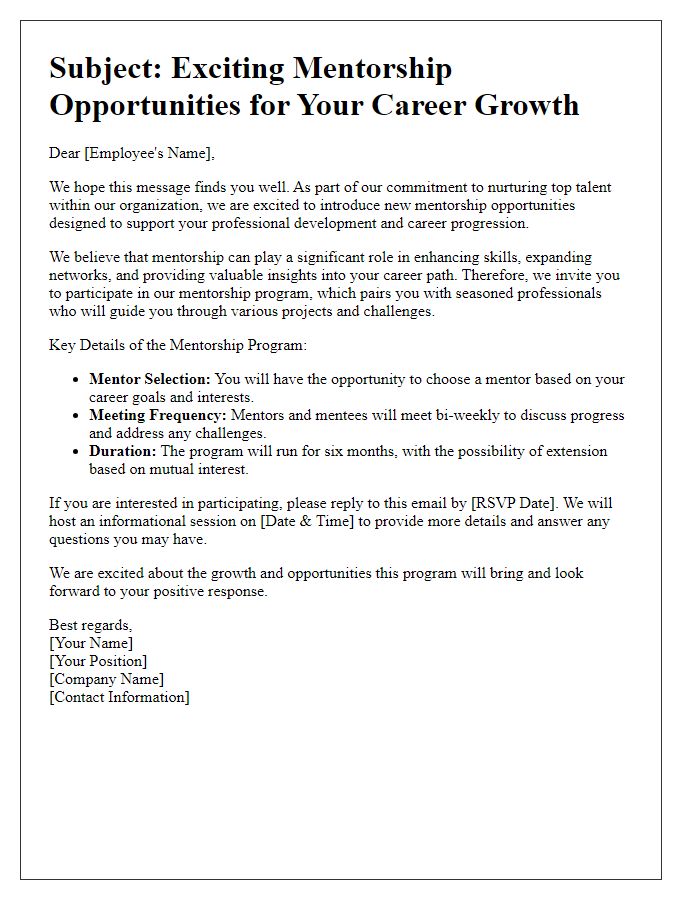
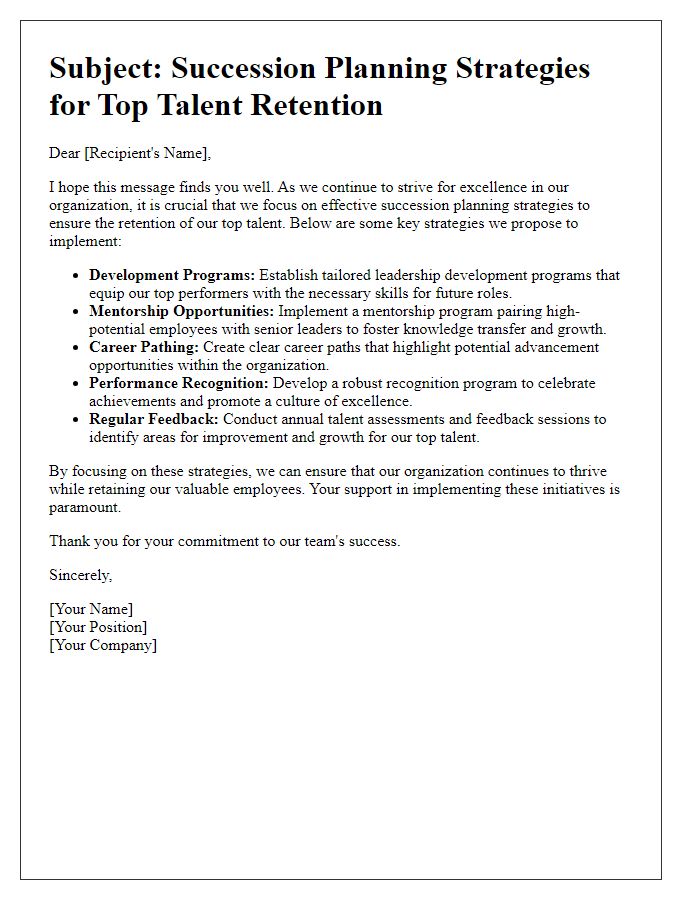


Comments